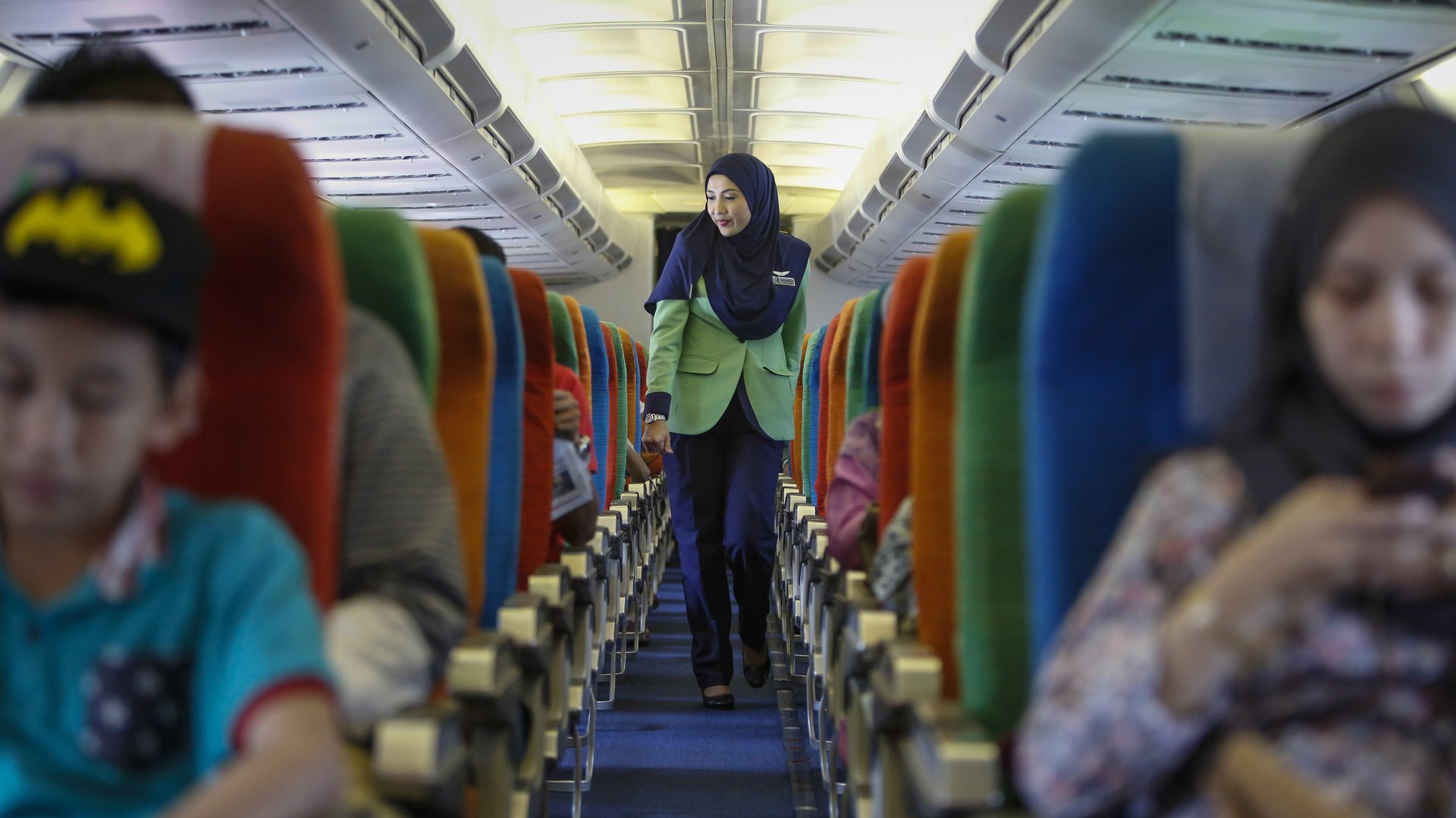A simple way for airlines to make “Flying While Muslim” easier for everyone
“Flying While Muslim” is the fun term for the not-so-fun experience of being forced to miss your flight or be grilled by security just because another passenger thinks you look Middle Eastern. It’s happened to a slew of Americans (most recently in three separate cases in November), and this week it happened to two Arabs—one of them an Israeli citizen—on an Aegean Airlines flight to Tel Aviv, when Jewish Israelis refused to take off with them on board. As anti-Muslim rhetoric heats up in America and Europe, it’s likely to happen more.


“Flying While Muslim” is the fun term for the not-so-fun experience of being forced to miss your flight or be grilled by security just because another passenger thinks you look Middle Eastern. It’s happened to a slew of Americans (most recently in three separate cases in November), and this week it happened to two Arabs—one of them an Israeli citizen—on an Aegean Airlines flight to Tel Aviv, when Jewish Israelis refused to take off with them on board. As anti-Muslim rhetoric heats up in America and Europe, it’s likely to happen more.
Airlines that cave in to this kind of racism justify it, as Southwest did in November, by saying they want to “safeguard the security of our crews and customers on every flight.” This, to put it as politely as possible, is bullshit. Other passengers are not the experts in catching terrorists; that’s what airport security is for. There’s no legal, ethical, or rational reason to let one paying customer decide that another paying customer can fly only if she submits to a body cavity search.
But airlines have a dilemma too. They have to keep all their customers happy. And what if, just if, that shifty-looking bearded fellow in 21C really was plotting to take the entire flight hostage with his ballpoint pen? Here’s a simple protocol airlines could follow when passengers say they’re “uncomfortable” about other passengers—one that makes room for their disquiet without rewarding racism.
Step 1: Perform extra security—but hold the flight
Flight or gate crews shouldn’t give in readily if one passenger casts suspicions on another. But if there’s a stand-off, they should ask the “suspect”—very politely—to go through extra security measures. Meanwhile, though, the plane waits—for as long as it takes. If it’s delayed, everyone on board pays the price. The complainant might not feel so great about spending the next five hours in a metal tube with 200 people whose day she just ruined.
One might object that it’s really the airline that pays the price. True; delays are expensive. But airlines could get creative with steps to discourage egregious complainers. They could levy penalty fees, or put people who’ve raised spurious threats more than once or twice on a no-fly list. Either way, it’s essential that it’s not only the person falsely accused of being a terrorist who bears the cost. That way there’ll be an incentive to prevent both delays and abuse.
Step 2: Pay the victims an ”interrogation bonus”
In the past, people who’ve been bumped off a flight because of flying while Muslim have received the same kind of compensation as people who get bumped because of overbooking or cancelled flights. So instead, compensate them even if they don’t miss the flight. As long as they’re cleared to fly, they get paid—perhaps even just a couple of hundred dollars. It’s peanuts for the airline but would do a lot for goodwill, not least as a form of recognition that it’s not the victims’ fault. Perhaps even better: Make the passengers who demanded that they be questioned pay for the compensation.
Step 3: If passengers still complain, bounce them
The only—the only—reason not to let someone who’s been through extra security measures back on the plane should be if law enforcement has grounds to believe she’s planning something shady. In other words, unless she’s under arrest, she flies. If other passengers still object, kick them off the flight, with no compensation. At that point, they have lost all right to their ticket.